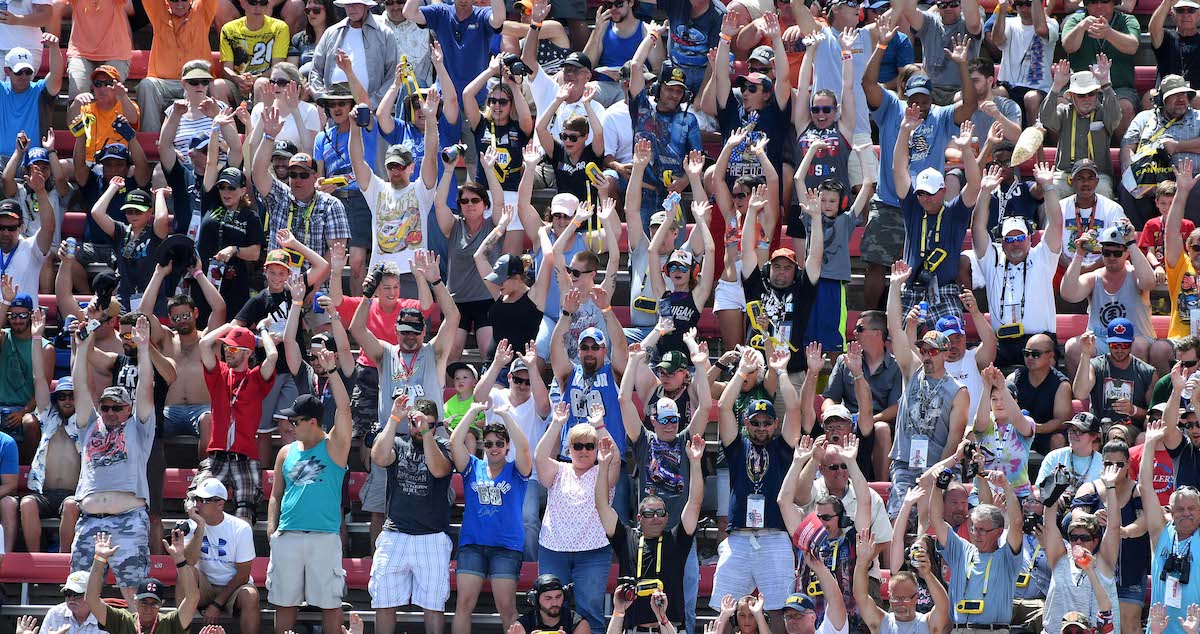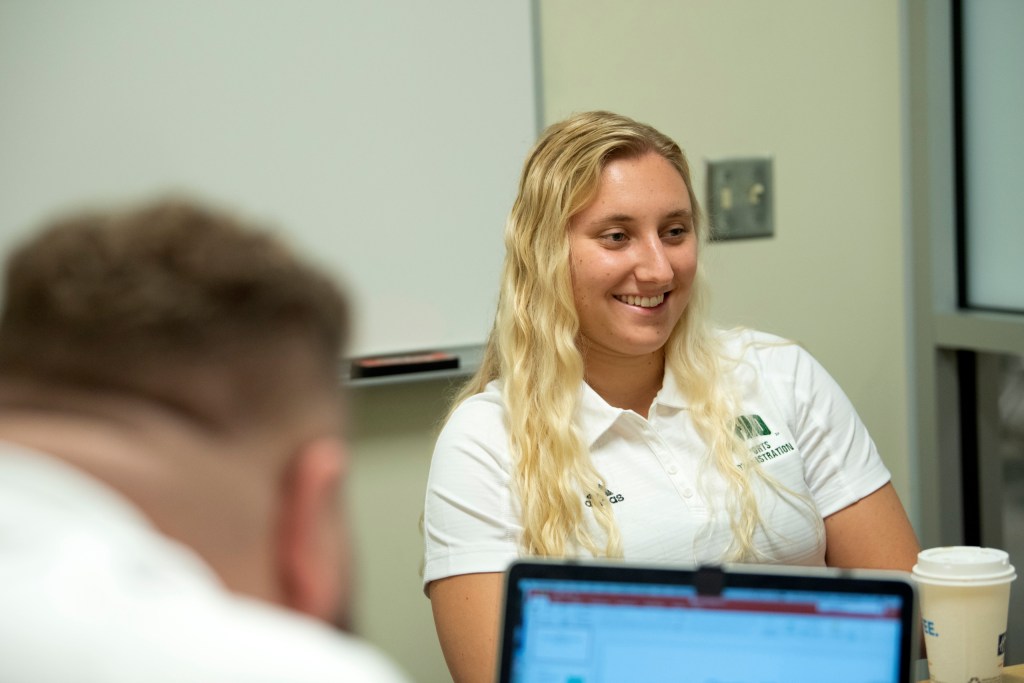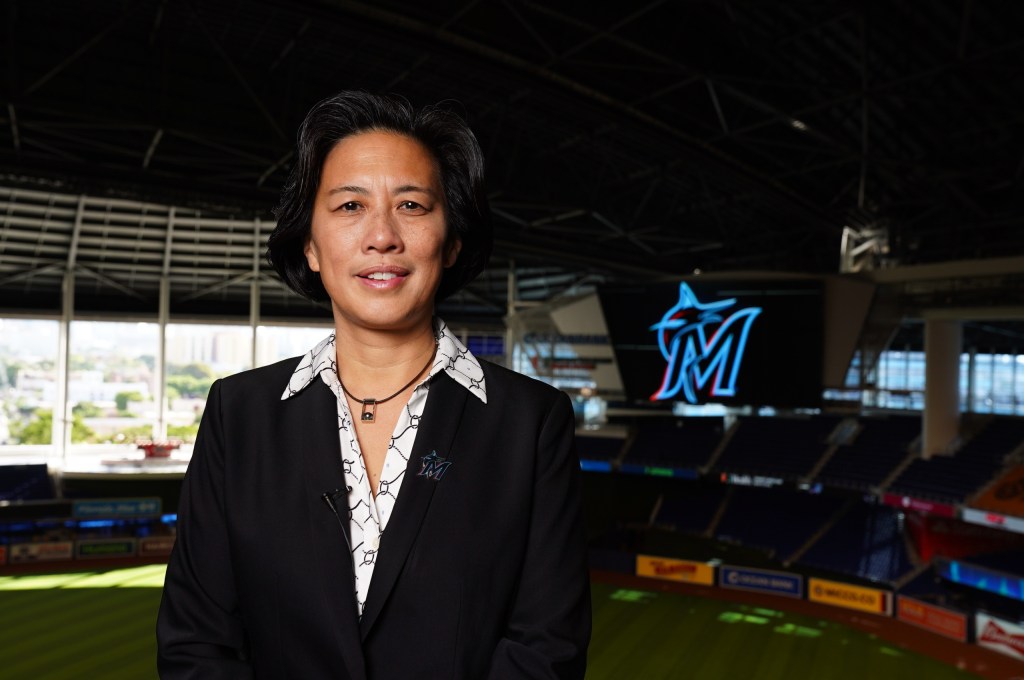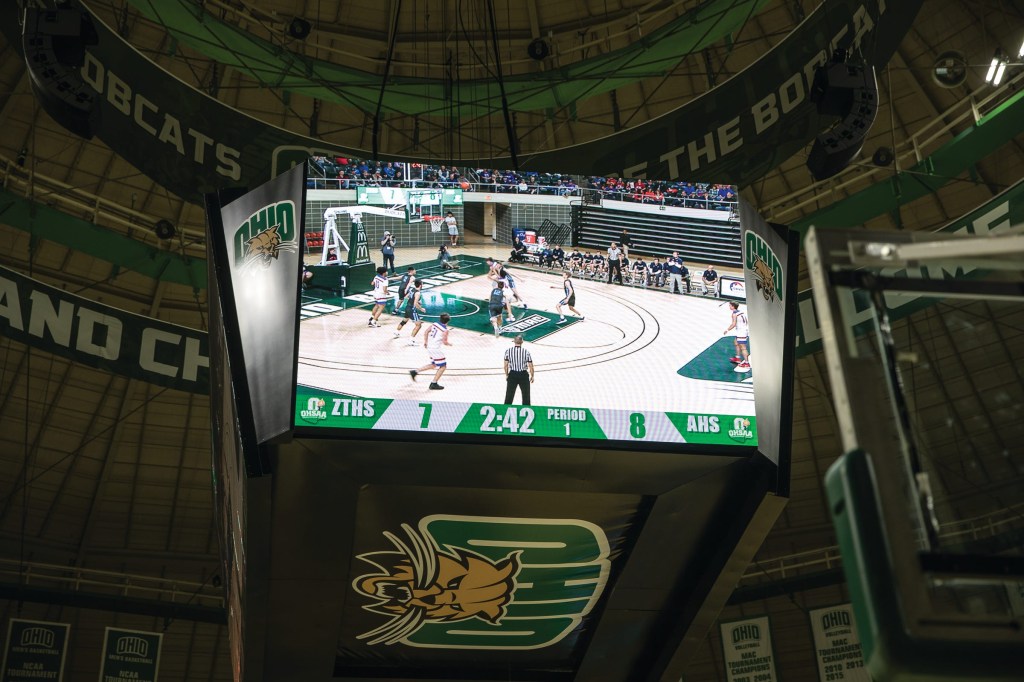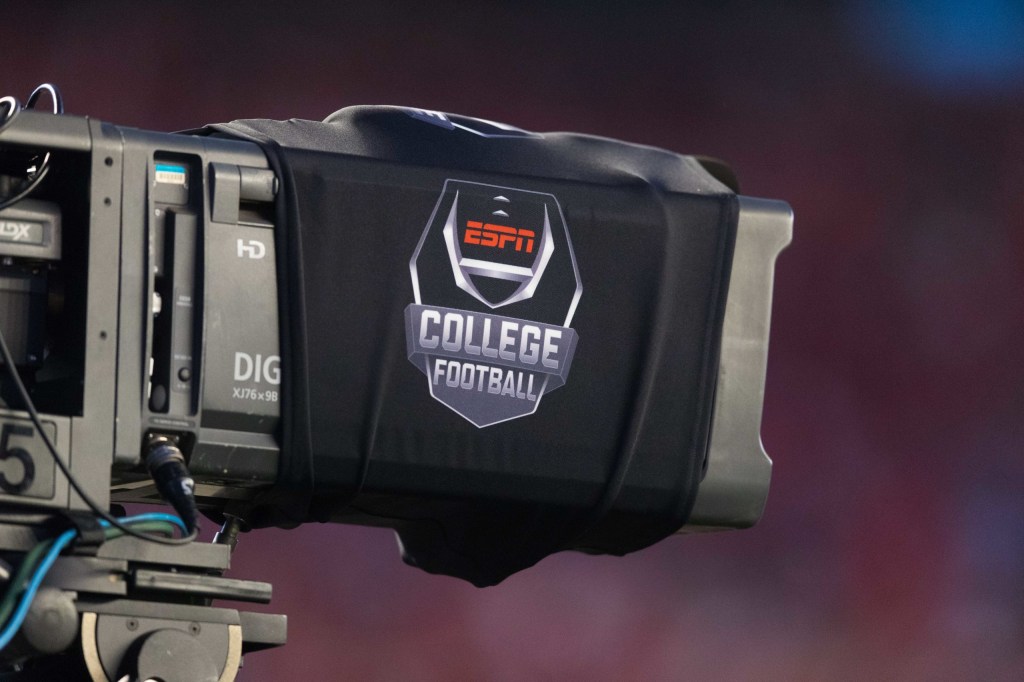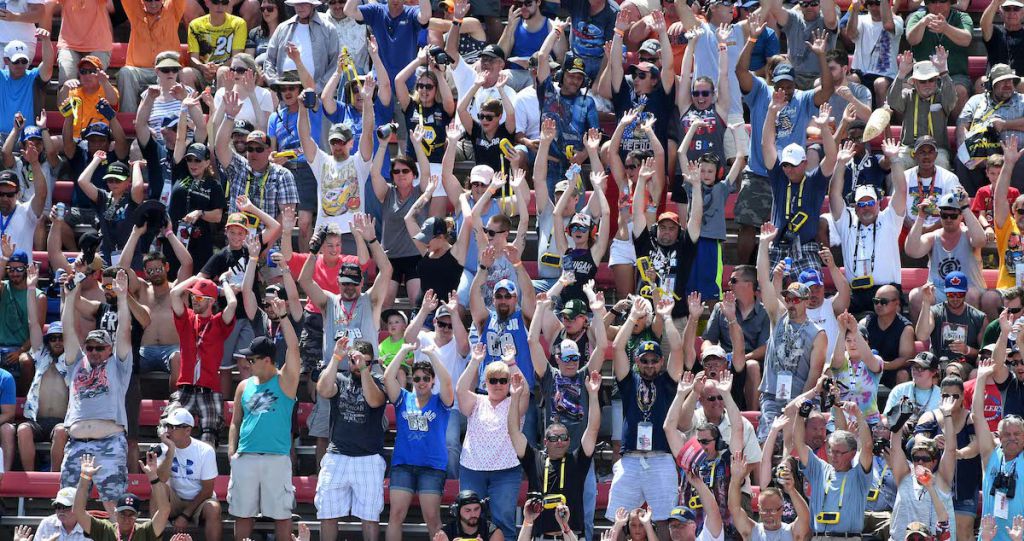
Breaking into the sports industry can be a daunting career path, so Michigan International Speedway has launched a training program that not only helps young professionals, but aims to improve the track’s customer service as well.
In the past, MIS brought on seasonal staff to help its ticket sales and customer service efforts. However, this year it formalized that program and structured training, branding it Fuel Academy – an effort MIS President Rick Brenner says aims to help both the employee and the organization.
“For the past few years, we’ve worked to create and implement outbound sales to provide customers with better service, and allow folks to talk to people here at the track,” Brenner said. “Now, we want to frame it up, give it its own face and brand — the goal is to create an opportunity for young people to come in and grow and sell tickets.”
READ MORE: A Look at the New Foundation of Richmond Raceway’s Ticket Sales
Brenner said the development of the Fuel Academy was a group effort internally at MIS, especially spurred by the hiring of Ryan Shelton and Michael Neis. They helped put together a “guide book” for success and lead the Fuel Academy class through role-playing conversations and product knowledge before letting them loose in sales efforts.
Shelton, the vice president of business operations, joined MIS earlier this year following six years with the Salem Red Sox, including three seasons as the team’s president and general manager. Neis joined the team as director of ticket sales and service following six years with the Oakland Athletics, most recently as director of membership and premium services.
“A lot of young professionals, college students, are looking for their first opportunities to get into the sports business,” Brenner said. “This is an opportunity for them to learn from some of the very best and development skill sets and provide them with a road map to top-notch service.”
Brenner said the goal for Fuel Academy is to prepare students to sell better during their time at MIS but also setting them up for greater success in their careers – even if that’s not with the organization.
From the outside Fuel Academy may look similar to any other inside sales program, Shelton said, but it is based on what he’s learned on throughout his career and adapted and evolved with the times. The first week is largely spent with leadership discussing the organization’s “why,” he said, and the new staff also spends the week going through role play situations and product knowledge so they’re fully comfortable by the time they jump on the phones.
Through the rest of the 24-week program, there are weekly individual meetings to look at their greatest victory and figure out if it’s repeatable and to set goals and to fix hitches throughout their sales process, whether the issue is getting appointments or closing sales.
“We don’t want to have them feeling lost or a manager feeling frustrating and bottling things up,” Shelton said. “A lot of it is helping them understand we control our destiny. We really want them to understand it controllable and developing relationships with clients and engaging them to lead them to return at a higher rate.”
Like MIS, more organizations are looking toward a more personalized approach to building young professionals’ careers, ranging from sales specific programs in colleges to sales leadership programs within pro sports organizations, like the Atlanta Hawks.
“Selfishly, we could probably hold on to them longer, but we don’t look at people as a number, we look at them as people and do whatever we can do to help them get to whatever they want to do at the next level,” Myers Dean, Hawks manager of new memberships said. “We don’t want to hold them back. Now we have so many, they call us when they need account executive, and most of the time we can send them a few right away.”
Shelton said through running programs similar to Fuel Academy throughout his career, he’s seen approximately 75% stay in the sports business, many advancing to leadership positions. He’s now the only remaining professional in sports from his 14-person inside sales class.
The past weekend was one of the biggest days of the year for MIS, with the FireKeepers Casino 400. Brenner said it was a crucial weekend to have these young professionals better prepared and on the ground telling the story of MIS’ fan-centric endeavors, as well as selling renewal plans for next year. Now they’ll prepare for the next major race in August.
Having more highly-trained salespeople will also be a boon for the track, which added several new fan-friendly initiatives this year such as an air-conditioned hospitality area and free pit passes for children under 12. Tickets are also now priced dynamically based on demand, Brenner said, to help make them more affordable. The 1,400-acre site also features free concerts and other entertainment options beyond just racing.
READ MORE: How NASCAR Stays Up to Speed in the Ever-Changing Digital Space
“We’ve added a slew of entertainment options and focused on our fan experience and want to show them we value their time with how we’re treating them,” Brenner said. “We’re really looking at the total experienced building out a package around the races.”
Brenner said he hopes the introduction of the more-structured Fuel Academy will not only help “fuel our crowd,” but also the young professional he hopes it attracts.
[mc4wp_form id=”8260″]
“Hopefully we look down the road 10 years and we’ve got a whole bunch of alumni that are either here or excelling and moving on to organizations across sports,” Brenner said. “We want to embrace the fact that folks are interested in sports and that it’s a great path to start a career and develop knowledge that will be useful in any sport or facility.”
